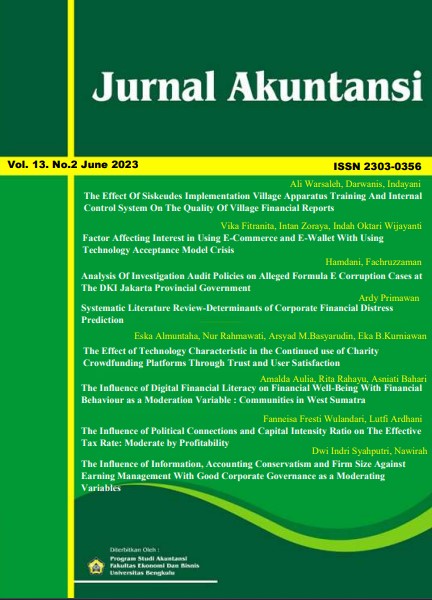Main Article Content
Abstract
The case of alleged Formula E corruption in the Provincial Government of DKI Jakarta is an interesting phenomenon as an academic study. An interesting part of the handling of alleged corruption cases in the scientific field is the investigative audit between practice and theory, paying attention to government regulations as a positive theory. It is strongly suspected that when the KPK requested an investigative audit it turned out to be not in line with the regulations that govern it. The fact is that in many corruption cases involving the Governor, the KPK has not asked the BPK to carry out an investigative audit to identify suspects. The difference between practice and theory and existing provisions is the material for analysis in this study. Since KPK was born in 2003 until now, it is only at this time that an anomaly was found in the practice of auditing state finances, especially investigative audits. In this regard, the KPK submitted a request for an investigative audit to the BPK before proving that there was an unlawful act.
The results of this study concluded that an investigative audit could not be carried out by the BPK RI on the alleged Formula E corruption case in terms of the existing regulations on the BPK and the KPK. BPK regulations require the KPK to expose cases to show illegal acts, but so far the KPK has not found any. The regulations at the KPK require that at the investigation stage a suspect has been named as the basis for a request to the BPK for the calculation of state financial losses, but the KPK has not been able to do so.
Article Details
Copyright (c) 2023 Hamdani Hamdani, Fachruzzaman

This work is licensed under a Creative Commons Attribution-ShareAlike 4.0 International License.
Author retains the copyright and grants the journal the right of first publication of the work simultaneously licensed under the Creative Commons Attribution-ShareAlike 4.0 License that allows others to share the work with an acknowledgement of the work's authorship and initial publication in this journal
Author is able to enter into separate, additional contractual arrangements for the non-exclusive distribution of the journal's published version of the work (e.g., post it to an institutional repository or publish it in a book) with the acknowledgement of its initial publication in this journal.
Author is permitted and encouraged to post his/her work online (e.g., in institutional repositories or on their website) prior to and during the submission process, as it can lead to productive exchanges, as well as earlier and greater citation of the published work (See The Effect of Open Access).
Creative Commons Attribution-ShareAlike (CC BY-SA)
Jurnal Akuntansi is licensed under a Creative Commons Attribution-ShareAlike 4.0 International License.

